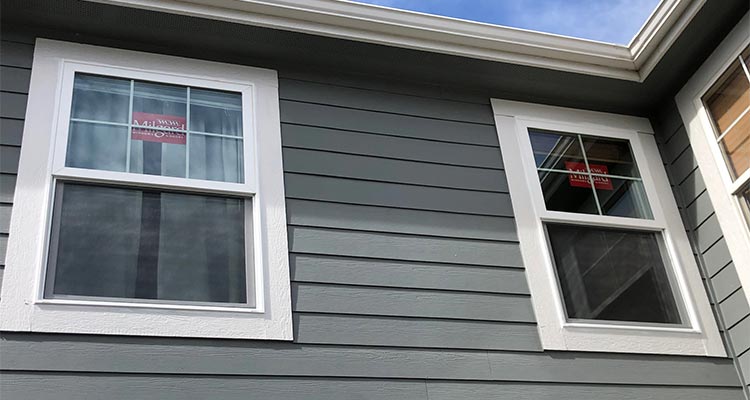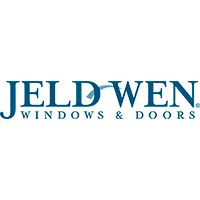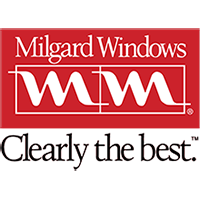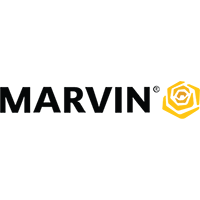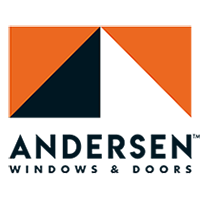Vinyl vs Fiberglass vs Composite Windows
Shopping for new windows can be a little overwhelming, with all the new frame materials available today. When comparing vinyl vs fiberglass vs composite windows, how do you choose the best window material for you? Is one more energy-efficient than another? Is one more durable and longer-lasting than the other? In this article, we’re here to help. We compare these popular window frame materials, show which window manufacturer makes which, and the pros and cons of each, to help you make an informed decision.
Vinyl Windows
Vinyl windows are the most affordable window in the market, are widely available, energy-efficient, low-maintenance, and are available in all the popular types. It’s no wonder most homes in the U.S. have vinyl windows. Are vinyl windows right for you? Consider the following pros and cons of vinyl windows before you decide.
Pros and Cons of Vinyl Windows
Pros
✅ Affordable
✅ Availability
✅ Energy-Efficient
✅ Low-Maintenance
✅ Variety
Cons
❌ Fewer Colors
❌ Less Sturdy
❌ Can’t Be Re-Painted
❌ Not Eco-Friendly
❌ Fluctuates
Affordable
The primary advantage of vinyl windows is their affordability. No other window is more affordable than vinyl. However, vinyl windows can also cost as much as aluminum clad wood windows. It depends upon the manufacturer and their series. For example, Milgard’s V450 HomeMaker Series vinyl windows are in the same price ballpark as some aluminum clad wood windows. Their V-250 Style Line is their most affordable vinyl window series.
Availability
Because vinyl windows are so popular, they’re the most available. 3 of the 5 window manufacturers we offer, offer vinyl windows. And, each of those offers more than 1 series of vinyl windows. Milgard manufactures 4 series of vinyl windows, Jeld-Wen offers 3, and Pella 2. In total, there are 9 different vinyl window styles for your consideration.
Energy-Efficient
Vinyl windows are energy-efficient by default as it’s a poor conductor of heat. Many vinyl window series are manufactured with energy-efficiency in mind. Milgard’s V-450 HomeMaker Series, for example, features a warm-edge spacer system which maximizes energy efficiency and improves seal performance of insulated glass.
Low-Maintenance
Vinyl windows are relatively low-maintenance. For example, Jeld-Wen’s Flat Casing vinyl windows features high-quality extruded vinyl that retains its color all the way through the frame. You’ll hardly notice a scratch on these vinyl windows. Vinyl windows are also moisture-resistant. They don’t swell when wet.
Many Types Available
Vinyl windows also come in all the popular types, such as awning, single or double-hung, fixed, bay, half-round, casement, and sliding. What’s more, some vinyl window manufacturers offer a variety of vinyl styes. Jeld-Wen, for example, offers a vinyl window with a wood texture that emulating the look of American Colonial wood windows or that of modern Georgian architecture.
Cons
Fewer Color Options
With all their advantages, vinyl windows don’t come in many colors. Jeld-Wen’s Builders Vinyl (V-2500) only come in 5 exterior colors and 3 interior. This is common among vinyl window manufacturers.
Less Sturdy
Vinyl windows are less sturdy than aluminum, fiberglass, and composite windows. In fact, it is the least sturdy window frame material. However, this isn’t a problem most of the time.
Can’t Be Painted
Vinyl windows come pre-painted from the manufacturer. If you ever change your mind and want to change the color of your window frames, the paint won’t adhere well and will likely flake-off. What’s more, if your re-painted window frames do get scratched, the color underneath will show.
Not Eco-Friendly
Vinyl is a type of plastic, which is derived from petroleum products, and is not biodegradable. Fossil fuels are used in the manufacturing process of vinyl. Large amounts of oil and energy are used in the process of manufacturing vinyl. Vinyl can only be recycled a very limited number of times. After which, it’s buried in your local landfill.
Fluctuation
Vinyl windows can fluctuate slightly in extreme temperatures. This expanding and contracting may affect the windows performance and insulation properties. In extremely hot or cold days in Colorado, you may find your vinyl windows difficult to open or close.
Who Makes Vinyl Windows
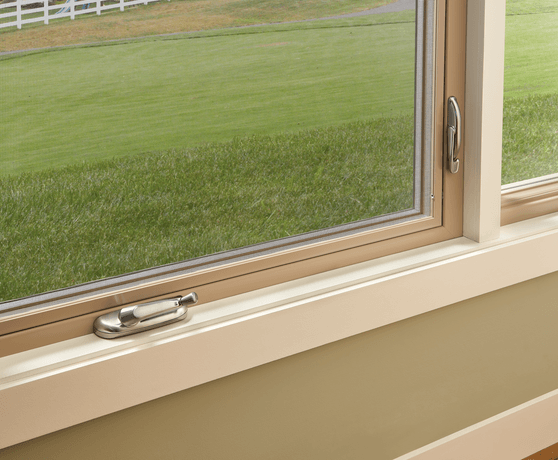
Fiberglass Windows
Fiberglass window frames are made from glass fibers and resin. They are many times stronger than vinyl windows and are more resistant to the weather, moisture, heat, cold, paint peeling, etc. Fiberglass windows are also very energy-efficient. As a result, they last longer than vinyl windows. You can expect a name-brand fiberglass window to last 30-50 years, if professionaly installed. This comes at a cost, however, On average, fiberglass windows cost about 25% more than vinyl windows.
Pros and Cons of Fiberglass Windows
Pros
✅ Sturdy
✅ Temperature-Stable
✅ Energy-Efficient
✅ Low-Maintenance
✅ Variety
✅ Moisture-Resistant
✅ Re-Paintable
Cons
❌ Fewer Colors
Pros
Sturdy: Fiberglass is very sturdy and strong. Marvin states their Ultrex Fiberglass is 8x stronger than vinyl.
Temperature Stable: Fiberglass won’t expand or contract in extreme temperatures.
Moisture Resistant: Because fiberglass is resistant to moisture, it won’t rot, corrode, swell, or shrink.
Low Maintenance: Fiberglass window frames resist extreme temperature shifts, as well as sagging, peeling, flaking, and cracking.
Types: Fiberglass is available in all the popular types, including awning, casement, single and double-hung, gliding, picture, bay and bow, radius, and specialty shapes.
Energy-Efficient: As with vinyl, fiberglass is also a poor conductor of heat. However, fiberglass offers even better insulation than vinyl windows.
Re-Paint: Unlike vinyl windows, you can re-paint your fiberglass window frames. Just be sure to use a quality exterior grade acrylic latex paint.
Cons
Color Choices: Fiberglass windows are limited in color choices, like vinyl windows. However, they are offered in popular colors, such as black, gray, bronze, white, tan. For the most window frame color options, take a look at aluminum clad wood windows.
Who Makes Fiberglass Windows
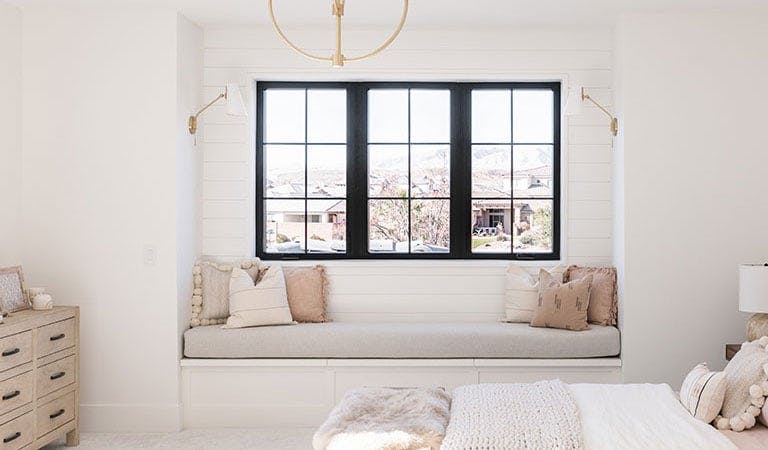
Composite Windows
Composite windows are window frames made from reclaimed materials, such as wood fibers and thermoplastic polymer. When wood and vinyl window frames are being manufacturered, there is waste. Think of it as saw dust. It’s this “saw dust” that’s reclaimed and formed, with adhesives, to create composite window frames. Composite windows are a great way to reclaim the waste from building other window frames. And, as it turns-out, it makes for great windows. Composite windows, such as Andersen’s 100 Series windows are made from their own Fibrex® composite material, which, according to their website, is twice as strong and rigid as vinyl. And, we can attest to this as we have installed many 100 Series composite windows by Andersen.
Pros and Cons of Composite Windows
Pros
✅ Durability
✅ Resistant
✅ Energy-Efficient
✅ Low-Maintenance
✅ Eco-Friendly
Cons
❌ Fewer Colors
❌ Availability
Pros
Durability: Composite windows are highly durable and strong. They resist warping and sagging. Composite performs better in extreme temperatures and won’t fluctuate like other window materials do.
Resistant: Since their composition includes plastic fibers and glue, they’re highly resistant to insects and rot. Insects are not attracted to plastic and glue.
Low Maintenance: Because composite windows are durable and resist warping sagging, insects, moisture, and they don’t need repainting, they’re very low-maintenance.
Eco-Friendly: Because composite windows reclaim waste material, they’re considered more eco-friendly than vinyl windows.
Energy-Efficient: Composite windows are as energy-efficient as vinyl windows. However, not quite as energy-efficient as fiberglass.
Cons
Colors: At the time of this writing, Andersen’s Fibrex Composite windows are only available in 4 colors: black, white, dark bronze, and sandstone.
Availability: Of the 5 window manufacturers we offer, only Andersen offers composite windows at this time.
Who Makes Composite Windows
Andersen is the only window manufacturer we offer that makes composite windows, and it’s their 100 Series.
Vinyl, Fiberglass, and Composite Windows Ranked by Cost
- Encompass by Pella (Vinyl) ($)
- Jeld-Wen’s Builders V-2500 (Vinyl) ($)
- Milgard’s V250 Style Line Series (Vinyl) ($)
- Andersen’s 100 Series Fibrex® (Composite) ($$)
- Milgard’s V300 Trinsic Series (Vinyl) ($$)
- Milgard’s V400 Tuscany Series (Vinyl) ($$)
- Pella 250 Series (Vinyl) ($$)
- Marvin Essential (Fiberglass) ($$)
- Jeld-Wen’s Premium V-4500 (Vinyl) ($$)
- Jeld-Wen’s Flat Casing (Vinyl) ($$)
- Milgard’s V450 HomeMaker Series (Vinyl) ($$$)
- Milgard’s C650 Ultra Series (Fiberglass) ($$$)
- Pella Impervia (Fiberglass) ($$$)
Vinyl vs Fiberglass vs Composite Window FAQ
Q. How do I know which windows are energy-efficient?
A. Most windows can be made energy-efficient. Start with the window size, then type, then frame material, then choose double or triple glazing, Low-E coating, Argon gas filled, etc. That said, some windows are more energy-efficient than others. For example, Andersen’s A-Series windows are their most energy-efficient windows.
Q. How do I choose one brand over another?
A. We only install windows from the top brands. Not all window manufacturers make all types of windows in all materials. We recommend starting with your budget or type. For example, if you’re looking for the most affordable window, consider vinyl from Pella or Milgard. If you’re looking for a gliding or sliding aluminum clad wood window, have a look at Andersen’s E-Series gliding window, or Marvin’s Ultimate glider window.
The Bottom Line
When comparing vinyl vs fiberglass vs composite windows, it’s important to ask yourself what’s important to you. If cost is your most important factor, replacement vinyl windows are perfect. On the other hand, if you’re looking for a window that lasts longer than vinyl yet is still affordable, consider Andersen’s Fibrex 100 Series composite windows. We are an Andersen Certified Contractor. With that comes a 2-year extended warranty on all Andersen window installations. Contact us today for a free window installation consultation or estimate.

